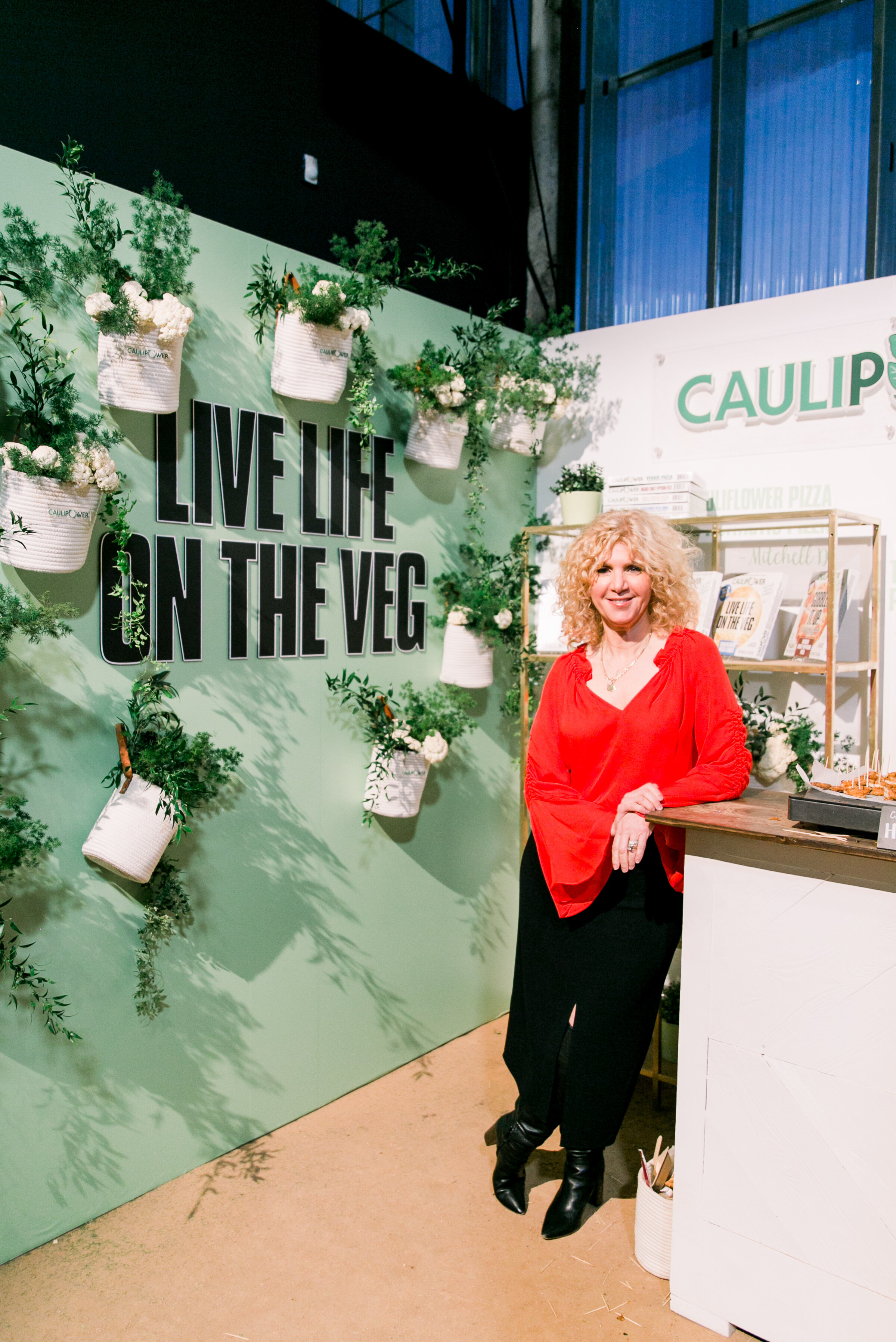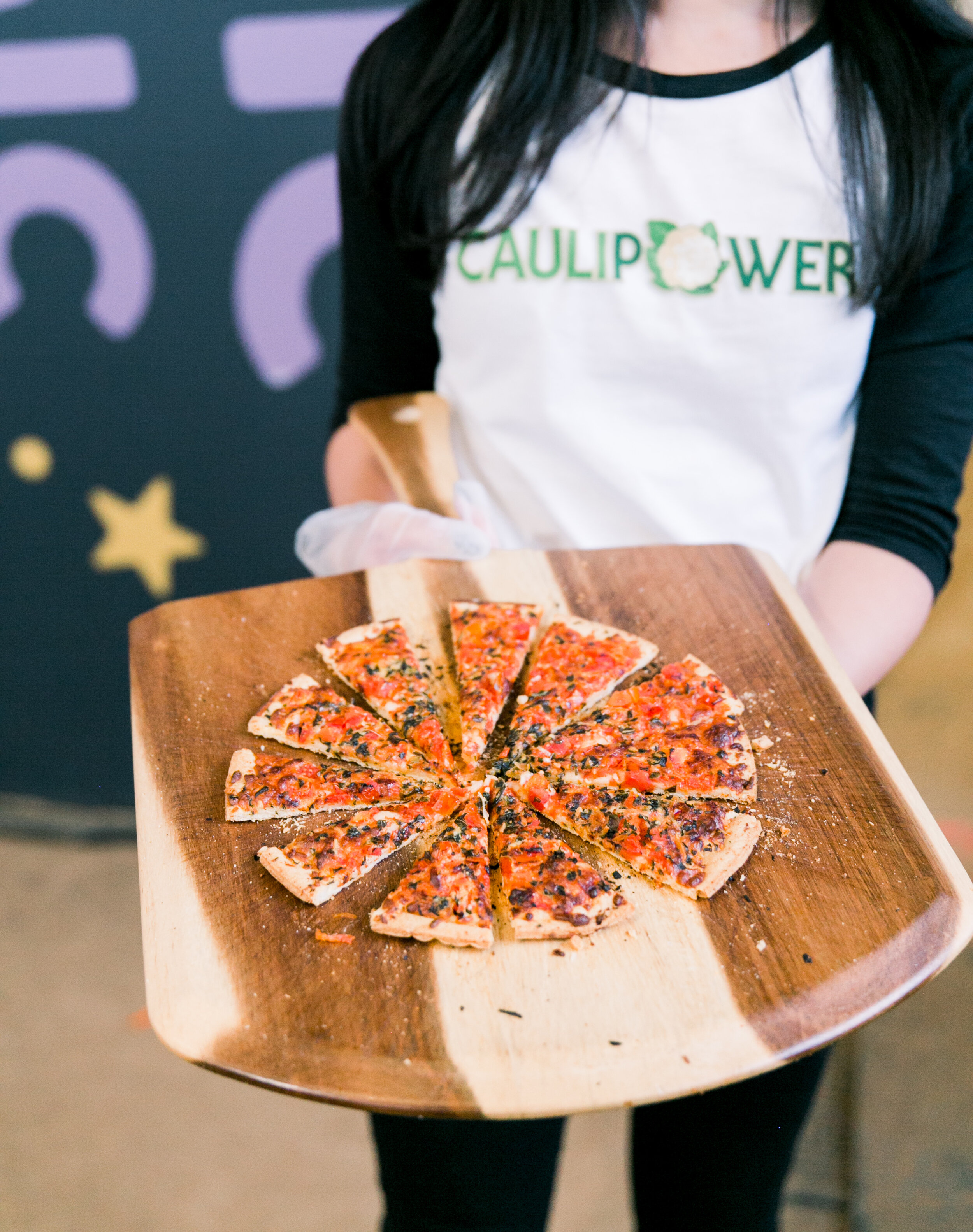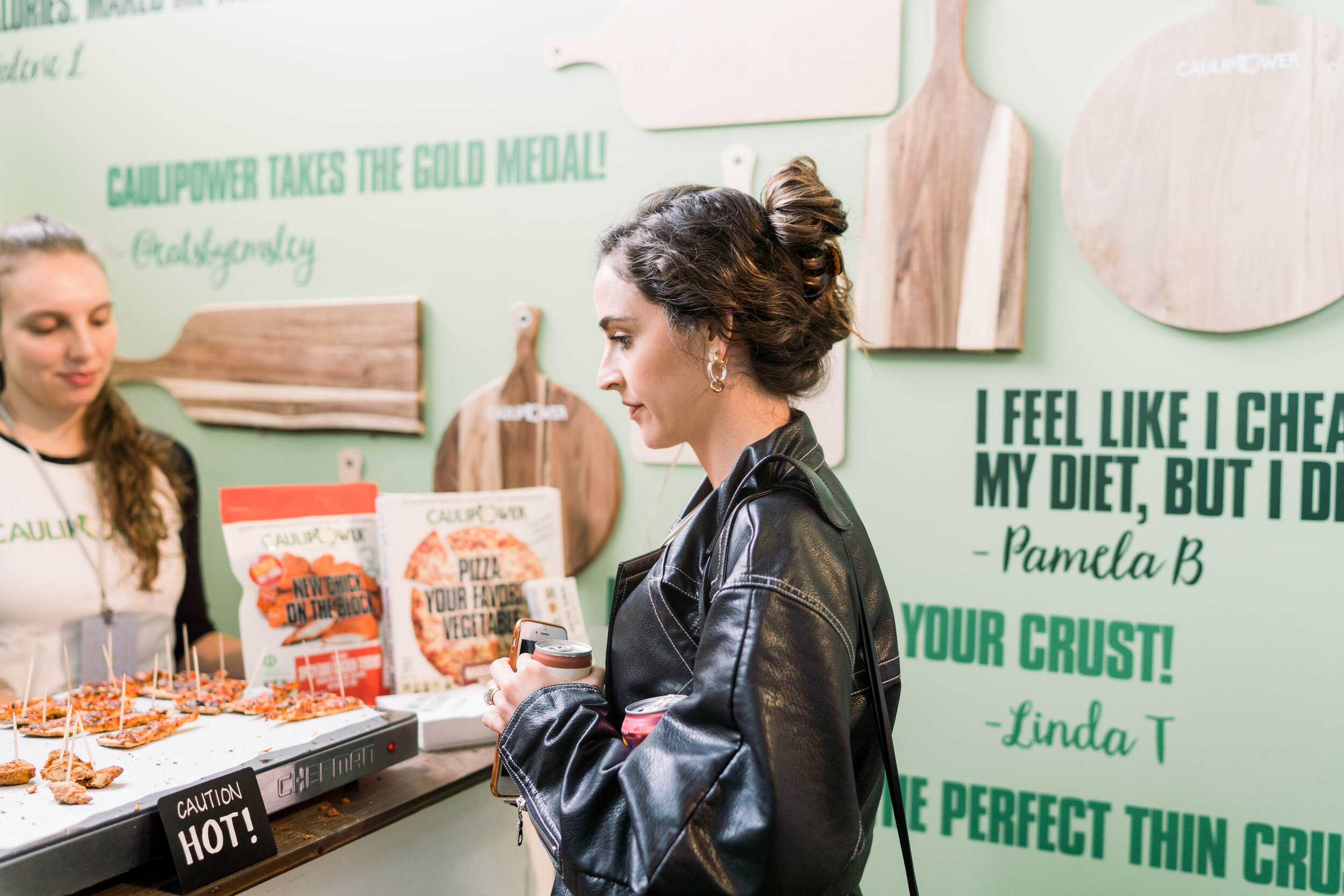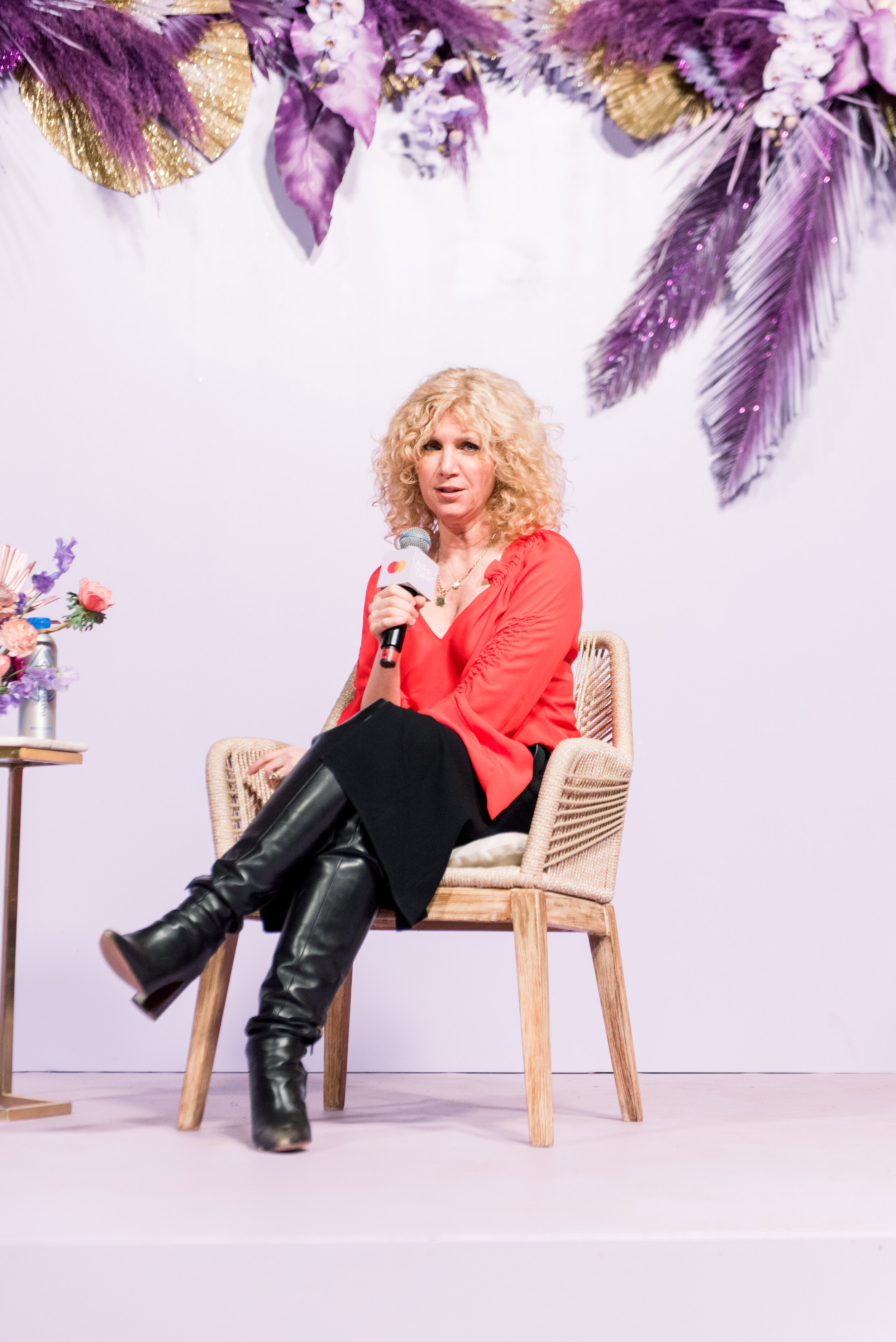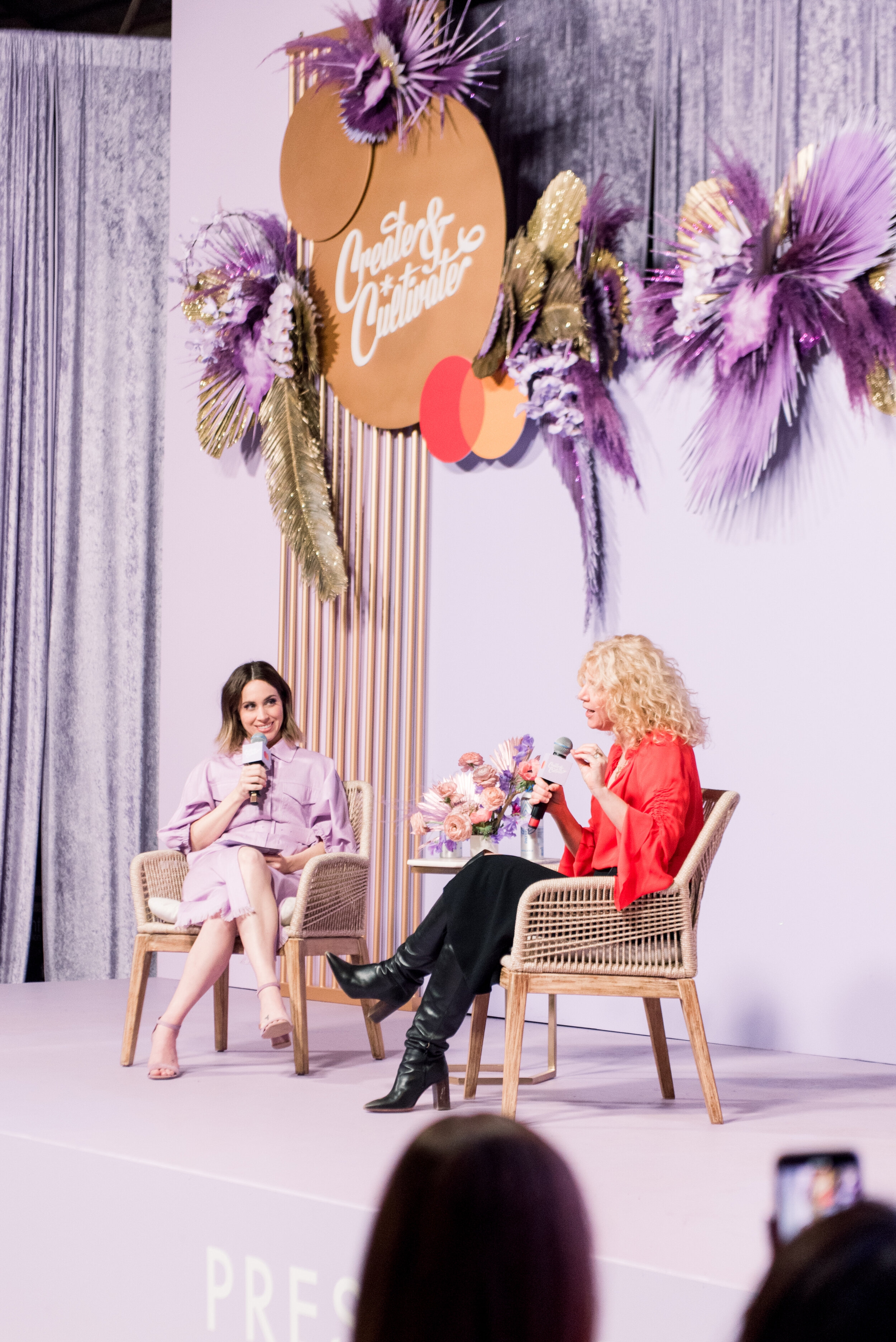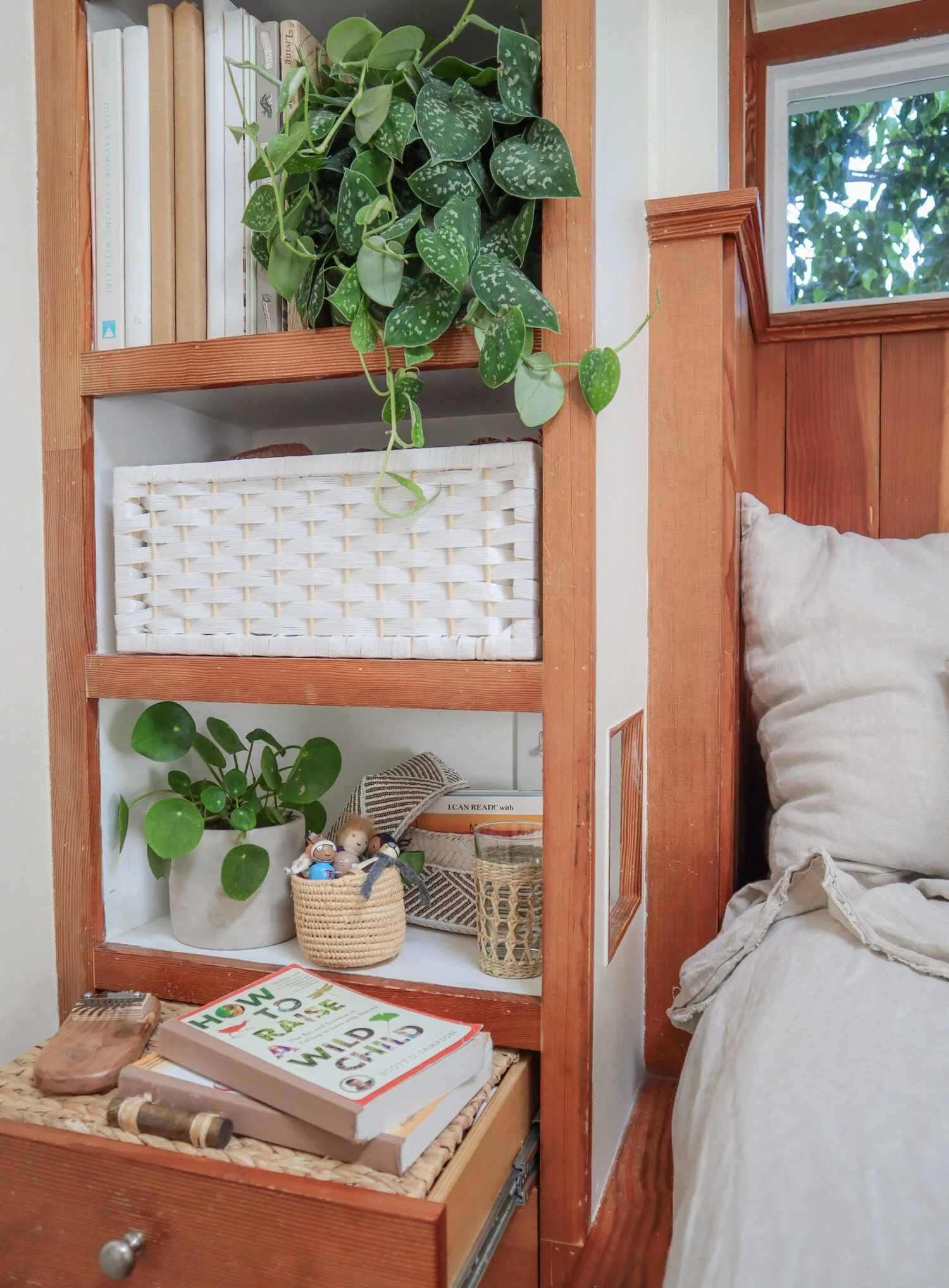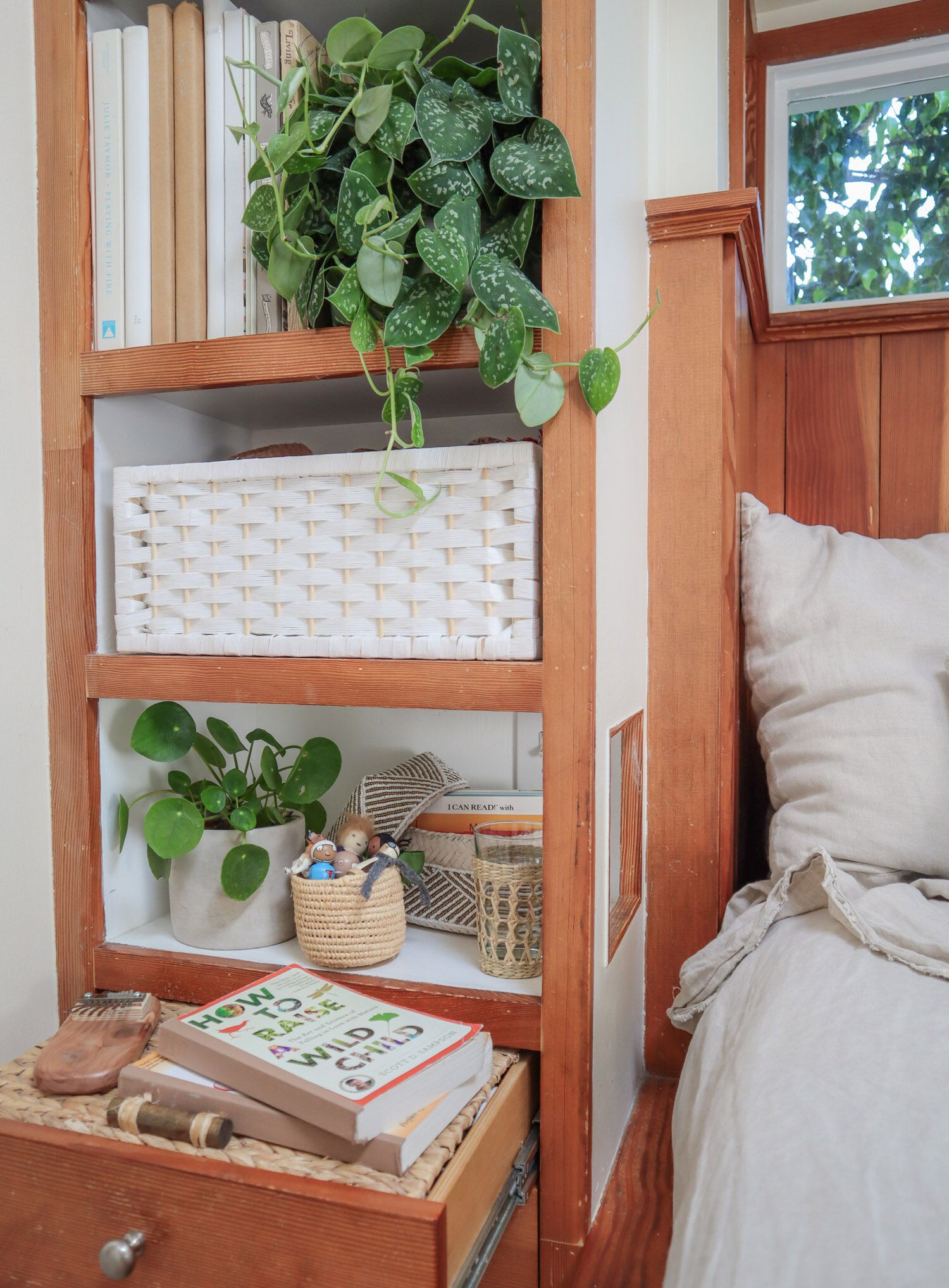One *Very* Successful CEO's 4 Hacks for Cold Emailing
She built an entire business from it.
Photo: Liza Summer from Pexels
Let’s talk about cold emailing.
Katia Beauchamp, the co-founder of the wildly successful beauty company Birchbox, has said that she and her co-founder started cold emailing CEOs in the beauty industry to get the idea in front of them. Now she's one of them. Beauchamp shared, "I cold emailed several presidents, CEOs, and brand managers in the beauty industry and the majority of people responded!"
So we asked: What are a few things that every cold email should include?
She divulged below.
1. Have a compelling subject line.
“It needs to motivate the reader to open the message. At the very least it should say something more than, ‘Hello,’ or ‘Looking to get in touch.’ I used, ‘Reimagining beauty online.’”
2. Keep the email concise.
“The email should be short enough so that a person can read it without having to scroll down on his or her phone. The less time and energy it takes to read it, the better.”
3. Don't attach a business plan to explain the idea.
“That's asking a lot. Try a one-pager that briefly describes the idea/value proposition. We framed our one-pager by introducing the brands as the stakeholder and how Birchbox could help that brand.”
4. Ask for something that’s easy to say yes to.
“I asked CEOs and brand managers for five minutes of their time to give me advice. Those emails eventually turned into a meeting and the meeting turned into a pitch. Those pitch meetings ultimately led to partnerships with massive brands, early on.”
Love this story? Pin the below graphic to your Pinterest board.
This story was originally published on May 25, 2017, and has since been updated.
Why This CEO Encourages Her Team to Sleep In
Yes, really.
Photo: Vlada Karpovich from Pexels
Restless days and sleepless nights are no laughing matter. Three years ago, you could count me among the 68% of Americans who say they have difficulty sleeping. I was working as an economist with the World Bank, and, thanks to an increasingly demanding travel schedule, I was suffering from chronic insomnia. I’d be suffering for months at a time before I could get a handle on my sleep schedule. I was burning out, fast, and I knew that something needed to change.
Getting real rest—the kind of rest where you wake up feeling refreshed rather than exhausted—is crucial to living a full and healthy life. In my search for a natural sleep solution, I finally tried a weighted blanket, and everything changed.
Weighted blankets work by delivering deep touch pressure (the act of applying even pressure all over the body), which is scientifically proven to reduce stress and anxiety, and promote calm. I had finally found the natural solution that I’d been searching for, but I found that in all of the weighted blanket products on the market, something critical—design, quality, sustainability, or breathability—had been compromised. So, I did what any entrepreneurially-inclined person would do: I set out to make a new one!
“Our culture is shifting away from wearing career burnout as a badge and embracing the fact that taking time to rest is beneficial to all aspects of our lives.”
I founded my company Bearaby with the mission to destigmatize sleep, make naps guilt-free, and champion rest as a non-negotiable part of a healthy lifestyle. When you make space for employees to incorporate the practices that help them feel refreshed and focused, there is a direct benefit to the quality of their work. I encourage employees to operate on the sleep schedule that allows them to be their most rested. Some people are early birds and some are night owls, so why force anyone to conform to a schedule that might not be best for their overall well-being? That’s why I’ve implemented core working hours from 10 am to 1 pm each day. Outside of that window, employees can make their own schedules. It gives our night owls the option to sleep in if they prefer, and our early risers a bit of a break in the afternoon to exercise, meditate, or even nap! And I’d encourage other leaders to adopt similar policies.
We’ve seen clear benefits from our company work style, and we’ve found that napping and flexibility have positively contributed to our success as a brand. We understand that self-care looks different for everyone, and we’ve found that a flexible work schedule that allows personal practices to be seamlessly incorporated into the workday helps us to stay balanced and creative as a team. Making sleep a priority can have immeasurable benefits for your organization. By meeting the unique needs of your staff, and being mindful of their physical, mental, and emotional wellbeing, you can foster a positive environment where individuals can truly thrive.
Before the pandemic, the connection between stress and anxiety and sleep health was already well documented. But now, one year in, the impact of mental health on sleep is more visible than ever. The pandemic has taken an enormous toll on our physical, mental, and emotional wellbeing, and uncertainty and fear have become constant companions for most people. In our busy, demanding, and increasingly complex world, we must prioritize relaxation and rest for both personal and professional wellbeing. Our culture is shifting away from wearing career burnout as a badge and embracing the fact that taking time to rest is beneficial to all aspects of our lives. It’s not just about our personal health—restful practices are key to producing better work, and increasing productivity. That’s why my modern workplace solution is the comeback of the power nap.
“It’s not just about our personal health—restful practices are key to producing better work, and increasing productivity.”
With our increasingly flexible schedules and working from home as the new normal, people are discovering the health benefits of taking an afternoon nap during the day. Some of the world's top health experts have praised the power nap as a way to boost productivity and efficiency in the workspace. Napping can be widely restorative and help to improve alertness, performance, creativity, and memory function.
As an entrepreneur and founder, I believe it’s important to let employees take the breaks they need for their own mental health and well-being. A beautiful community of nap-vocates is also flourishing alongside us. We’re delighted to see a shift in the negative stigma around napping. Instead, it’s becoming a shareable trend, with people proudly showcasing their self-care regimen on their social feeds.
I hope that by building a company that prioritizes individual health and the health of the planet, we’re one step closer to a calmer and more collected world.
"I believe it’s important to let employees take the breaks they need for their own mental health and well-being."
—Kathrin Hamm, Founder and CEO, Bearaby
About the author: Kathrin Hamm is the founder and CEO of Bearaby, an award-winning weighted blanket company on a mission to free the world of sweaty, plastic-filled weighted blankets. Named one of Entrepreneur’s Powerful Women of 2020, Kathrin’s approach to simple and sustainable self-care without compromise has woken up a tired industry. She aims to destigmatize sleep, make naps guilt-free, and champion rest as a crucial part of a healthy lifestyle.
It was Kathrin’s personal sleep struggle that inspired her to launch a game-changing product with the brand’s flagship Napper in 2018. During a robust career as an economist with the World Bank, her on-the-road lifestyle began to take a toll on her sleep, leading to chronic insomnia issues. Through the science of deep touch pressure, she was able to sleep better, naturally and without medication. When she couldn’t find a weighted blanket that was breathable, stylish, or sustainable, she knew she had to set out to create one.
Since then, Bearaby’s signature knitted blankets have garnered a devout fan following and international notoriety, winning both The Red Dot Design Award and Fast Company’s Innovation by Design Award in 2020. The company was also selected as the Sleep Foundation’s top pick for best weighted blanket of 2021.
MORE ON THE BLOG
"I Maxed Out All of My Credit Cards and Lived Off Savings"—Now She's Built a $100M Company
CAULIPOWER CEO, Gail Becker gets real about bootstrapping, raising money, and running a multi-million dollar business.
You asked for more content around business finances, so we’re delivering. Welcome to Money Matters where we give you an inside look at the pocketbooks of CEOs and entrepreneurs. In this series, you’ll learn what successful women in business spend on office spaces and employee salaries, how they knew it was time to hire someone to manage their finances, and their best advice for talking about money.
“I took a risk and bet on myself. That’s the hardest part. If you don’t bet on yourself, who else ever will?”
—Gail Becker, CEO of CAULIPOWER
Money: like religion and politics, it’s off the table but if there’s one thing we need to talk about more, it’s money, especially as women. Why? Because more women than ever before are starting their own businesses and they’re growing at twice the speed. In fact, a new report found that 42% of all firms are female-owned and women started 1,817 businesses a day in the past year. Despite that, women-owned businesses still struggle to get crucial financing so we need to ditch the taboo and open up a public dialogue to better understand how to raise it, manage it, and grow it.
Someone who is boycotting that ban is the founder, and CEO of CAULIPOWER, Gail Becker. Since 2017, Becker has built a $100m company and completely disrupted the food industry to become the #1 better-for-you pizza in the U.S. At our recent LA2020 conference, Becker had some no-filter money advice, especially around the topic of raising it. Having taken on two rounds of investment for CAULIPOWER, she knows each entrepreneur must make the right choice for them. “Just because you can raise more money, doesn’t mean that you should” she told the audience. “It’s not a symbol of how successful you are… or will be.”
Becker also decided against a friends and family round for her startup. “It made me nervous to play with my friends’ and family’s money,” she explained. “I waited as long as I could before seeking outside funding. I used all of my own money initially and maxed out all my credit cards.” There are different ways to fund your business and, ultimately, it needs to come down to what you feel most comfortable with and what your business needs are,” she explained. “I took a risk and bet on myself,“ she said. “That’s the hardest part. If you don’t bet on yourself, who else ever will?”
So, we tapped the powerhouse founder and CEO to share more of her money lessons, mistakes she’s made, and advice for small business owners. Read on and grab a pen, you’ll want to write these down.
On bootstrapping the company in the beginning…
When I first started CAULIPOWER, my goal actually wasn’t to make money. My dad, who was an entrepreneur and a Holocaust survivor, had recently passed away, and it made me recognize the fragility of life. I had been working my way up the proverbial ladder of corporate America, and then decided that I really didn’t like the view. I wanted to do something more meaningful with my life and I realized that I needed to make a change. That, along with my frustration in what I was seeing in the freezer aisle, created an ‘aha' moment that inspired me to launch CAULIPOWER.
My dad had left me with a small amount of money, and I knew the best way to honor his memory was to follow in his entrepreneurial footsteps. I knew how hard my father worked for every dollar he made, so I spent each one cautiously. I also put in a fair amount of my own money and lived off my savings. On a personal note, it was an interesting transition for me. I was coming from a comfortable job in corporate America with a comfortable salary, and I was used to a certain lifestyle.
When I started CAULIPOWER, I said goodbye to that life and paid attention to every dollar that I was spending, both personally and for the company. I downgraded my lifestyle significantly, saying goodbye to any shopping (outside of the grocery store) and vacations, and even sold most of my former wardrobe such as purses and shoes online. Even that wasn’t enough to sustain the launch of CAULIPOWER, so I maxed out all of my credit cards and tapped into more of my savings.
While this was the right decision for me, everyone has to choose the route that makes sense for them. For me, this was the only way I could bring my vision to life. I was nervous to take money from friends or family, but that doesn’t mean that’s the wrong choice for others. In hindsight, I have several friends and family who now wish I would have asked. At the time, I just followed my gut and made a choice about how I could make things work without negatively impacting others.
On raising money twice since then…
I raised money for a few reasons. First, the frozen food industry is an extremely cash-intensive business. You have to make the product before you can sell it, and there’s a pretty quick need for money given cash flow. When it comes to raising money, timing is incredibly important. I learned quickly that you should try and build the business as much as possible before you raise money. Why? The smaller your business is, the more of the company you will have to give away when you raise money in exchange for equity. Ideally, it’s best to try and hold off until you’ve made some actual sales.
Having said that, one of the worst things you can do is starve a business from cash. Cash is like fuel. We need it to make our products, to pay for promotions, to hire staff, and to market the brand. The timing of it all is a delicate balance between raising too much money, forcing you to give away more of the company when it is of the least value and starving the business, stunting its growth and first-to-market advantage.
“Just because you can raise more money, doesn’t mean that you should. It’s not a symbol of how successful you are or will be.”
On the most surprising part of the venture capital process…
I was surprised at how personal the process became. It would be easy for someone to interpret reactions as a reflection of the quality of one’s idea. If a VC didn’t want to invest in CAULIPOWER or wanted to wait for more data, I questioned myself. What did that say about my idea? The reverse was also true. When you find a partner that believes in you and is prepared to invest money into your business, it can be an incredible confidence boost. It’s a moment when you finally think, maybe this idea is not so crazy after all?!
One of the biggest mistakes that some people make during the fundraising process, is the instinctual desire to take money from the first person that offers it. You should always try to take ‘“smart” money—money from people who know more about the industry, category, and process of building a company than you do. What’s most important is to take money from people who will work hard for you and your idea.
Another part of the fundraising process that surprised me was how similar it was to, well, dating?! Remember, they’re not just interviewing you; you’re interviewing them too! You have to ask yourself ‘who do you want to be in the trenches with you for the long-term? Who will be there for you when the times and decisions get tough—because they will! Who shares your vision?
On the most common mistakes people make when raising money…
Raising too much. Just because you can, doesn’t mean you should. The ability to raise large amounts is not an indicator of the success of your business, rather it’s an indicator that a lot of people will be counting on you and you better deliver. It’s important to raise what you need, which should be enough to hold you over for a while, but not forever. From there, you can build the company to something bigger, then raise more money when it becomes more valuable. My first round of funding was $2M.
“One of the worst things you can do is starve a business from cash—cash is like fuel. ”
On the three crucial elements, every pitch deck should include…
First, you need to show the potential of the company or the white space. Why is this the right business at this time? What hole are you filling that currently doesn’t exist? Another crucial element is the data. You should try and show as much data as you can, even if you have to buy some of it. Show the real performance of your product if it's currently in stores, or use other competitive data to give a sense of how it might do. If it’s not already in the market, you need to prove why you believe it would do well, and this is best accomplished by definitive proof points. Show them that you have done your homework and that you don’t expect anyone to just take your word for it.
Finally, you need to show your passion. Most investors are not just investing in the business; they’re investing in YOU, the entrepreneur. If you're not passionate—and confident—about your own idea, then it really doesn't matter how good of a business plan you have.
On how much she paid herself in the beginning…
I didn't pay myself in the beginning. I lived off of my savings from about May 2016 to September 2017. Once I got VC funding, they made me take a salary and I’ve had the same one ever since. For comparison purposes, it is less than 1/5th of what I used to make when I worked in the corporate world… but I couldn't be happier.
On her first hire…
My first hire was someone who helped me fill out the deluge of paperwork I was facing from the retailers, brokers, and distributors. I realized all the time I was spending with paperwork was a huge opportunity cost and that my time would be better spent in other areas of the business.
On the first big expense as a business owner…
The first order I placed to make the first product.
On when she hired an accountant…
One of the best things about the economy we live in is that you can hire contractors to help you with just about anything. Thanks to some referrals, Google, and some other people I had met in the industry, I came across an agency that performed CFO duties for-hire for small companies. As soon as I got my first order, I knew I had to hire them.
I strongly believe that the most important thing to know as a first-time entrepreneur is to know what you don’t know and then hire around it. Many entrepreneurs mistakenly believe that they somehow need to know all aspects of their business. Nothing could be further from the truth. Know what you know and then hire experts to fill in the gaps.
“Know what you know and then hire experts to fill in the gaps. ”
On the most important area for business owners to focus their financial energy…
Put it into making the best product or service you possibly can. At the end of the day, you can have everything else figured out, but if you don’t have a product that people want, nothing else matters.
On why women should talk about money and business more…
When I was in my first marriage and at my old job, I’m embarrassed to admit that there was a lot I didn’t know about my own finances. I wasn’t financially illiterate, but I never made it a priority to become informed. When I got divorced, the need to become financially literate hit me in the face. I remember thinking, “I will never do that again.”
On having a financial mentor…
I did have some incredible people in the industry (and outside of it) that I looked up to, asked lots of questions of and with whom I’ve stayed connected. I never really had a financial mentor, but then again that wasn’t the primary reason why I started CAULIPOWER. My initial goal wasn’t to make lots of money; it was simply to help people have access to better options. If that’s why you start your business though, then that’s fantastic and finding a financial mentor might be the right choice for you. Now that I am running a business and am responsible for other people, the financial decisions I take on have tremendous importance.
On the money mistakes she’s made and learned from along the way…
I think it all depends on whether you’re new to your industry or if you have a background in it. If I had any sort of experience in the frozen food space prior to launching CAULIPOWER, I probably could have made some different decisions. Since that wasn’t the case, I placed a lot of trust in other people. I trusted that they knew more than I did and there’s a fair amount of trust that I probably placed blindly. In some cases, that ended up having a high price tag associated with it.
“If you’re not passionate—and confident—about your own idea, then it really doesn’t matter how good of a business plan you have. ”
On her best money advice for new entrepreneurs…
You don’t have to know all of the answers. You just have to know enough to hire the people who do. Just because you may not be a financial wizard, it doesn’t mean you shouldn't go into business. Just surround yourself with the right people who can teach you…and ask lots of questions. Daily.
I don’t equate money and happiness. The experience of launching and building CAULIPOWER showed me that one of the reasons I was so hesitant to leave my stable career is that I thought I had a great life. There was this inherent fear that if I lost all of those trappings that I had grown accustomed to, I wouldn’t be happy.
Today people who know me often hear me say “half as rich, but twice as happy” and no sentiment could be truer. Now, I realize that those things didn’t matter at all and the chance to build CAULIPOWER, take a bet on myself and help other people along the way has been the greatest professional joy of my life. I hope these words help to realize the same in you.
To learn more about CAULIPOWER and try their delicious pizzas, visit eatcaulipower.com.
Even CEOs Need Their 8 Hours a Night—6 Women Share Their Nightstand Must-Haves
These bedside essentials make all the difference.
Photo: Whitney Leigh Morris
What does your evening routine look like? Is it structured or does it change depending on the day?
The good news is, no one will judge you either way, but there is evidence that a bedtime routine will help you get better z’s. “Most of us cannot sleep on command, but routine helps the brain know that it’s preparing for sleep,” Rebecca Scott, research assistant professor of neurology at the NYU Langone Comprehensive Epilepsy Center—Sleep Center told Time. “Our sleep system, along with most other neurophysiological systems, likes predictability and consistency.”
Of course, there is no set regime that suits everyone so it’s up to you to determine what works, but it doesn’t hurt to hear how other women we admire wind down after a long day. Our CEO, Jaclyn Johnson, swears by eight hours of sleep a night to ensure she can perform at her optimum each day. Read on to hear what bedside essentials six women—who all joined us at our Self Care Summit in L.A. last year—have on their nightstand to ensure they get enough sleep and can perform at 100 each day.
Deepika Chopra, Optimism Doctor
1. The Things Are Looking Up Optimism Card Deck
”I pull a card every evening and carry out the holistic and science-based suggestion to increase happiness.”
2. Lavender and Lemon Essential Oils
”I use lavender before bed and lemon just as I wake up.”
3. Glass Carafe of Water.
”Drinking water is so challenging for me, so keeping it right by my bedside is one way to try and work on this.”
4. A children’s book.
”I always have at least one book that my son is super into at the moment. Right now it’s Blueberries For Sal.
Whitney Lee Morris, Founder of the Tiny Canal Cottage
1. Nothing
”The top must-have on my nightstand is actually the absence of something. If I keep my devices nearby I’m likely to wake up and check them and then stay up for the rest of the night. As such, I now keep tech—especially my phone—out of the bedroom.”
2.Books
”It’s important for me to have books by the bed—both for myself and for my child, who often climbs into bed with us overnight. Having books within arm’s reach helps my son stay safely and happily occupied in the early morning while I snag a few precious extra minutes of shut-eye.”
Claire Fountain, Wellness Writer, and Mental Health Advocate, Creator of Trillyoga
1.A Soft Light
”For me, I need to have a peaceful minimal environment and hydration. My nightstand only has a soft light that helps to prepare the body for sleep.
2. Body Butter, Eye Drops, and Lip Balm
”Hydration items (skin, eyes, lips) are essential because night is when the skin heals itself and so it’s a perfect time to let all that moisturized goodness absorb, plus I can’t sleep if I feel anything is dry.”
3. A Silk Eye Mask
”A silk eye mask because it’s the best for delicate face skin, and blocking out lights helps the body get the best, uninterrupted sleep I can.”
Shiva Rose, Founder of the Local Rose & Alchemist creator Shiva Rose Beauty
1.Magnesium Oil
”I love my nightstand since it’s almost like an altar for well being and beauty. For sleeping better I have a bottle of magnesium oil which calms the body, rescue remedy which calms the mind, and some rose quartz crystal for love and harmony.”
2.Books
”I’m currently re-reading Finding God Through Sex.”
3. Venus potion
”I collaborated on this potion with the lovely herbalist wooden spoon. This potion helps enhance our feminine elements.”
4. A landline.
”I have a landline since cell phones can disrupt our sleep and wellbeing.”
Lauren Gores, Co-Founder of Summer Fridays and Lifestyle Content Creator
1. 5 Minute Journal
”I love to have a few minutes of quiet time before bed, and the 5 Minute Journal is the perfect way to escape and reflect on my day.”
2. Slip Sleep Mist
”I love to spray this mist before bed—the chamomile and lavender oils create a super calm and relaxing environment.”
3. Summer Fridays Jet Lag Mask
”I love to apply a thick layer of Jet Lag mask under my eyes before bed so I can wake up looking and feeling refreshed.”
4. LANIEGE Sleep Lip Mask
”I love to apply a layer of the LANIEGE lip mask before bed to hydrate and smooth my lips while I sleep.”
5. Slipsilk Sleep Mask
”I always get my best sleep when it is completely dark, so I always keep my Slipsilk Sleep Mask in my nightstand. It is *so* soft and the anti-aging properties are an added bonus.”
Lestraundra Alfred, Host of Balanced Black Girl podcast
1.Lip Balm
”I’m all about being as moisturized as possible, and I find having lip balm on my nightstand reminds me to put it on before bed, keeping my lips soft and moisturized.”
2.5 Minute Journal
”I love using my 5-minute journal to reflect each night before going to bed, and it is a key part of my morning routine as well. Each night I like to take a moment to reflect on the day's highlights and to start jotting down notes for the next day. This helps me end the day with gratitude, and to get any lingering thoughts out of my head for more peaceful rest.”
This story was originally published on July 9, 2019, and has since been updated.



















